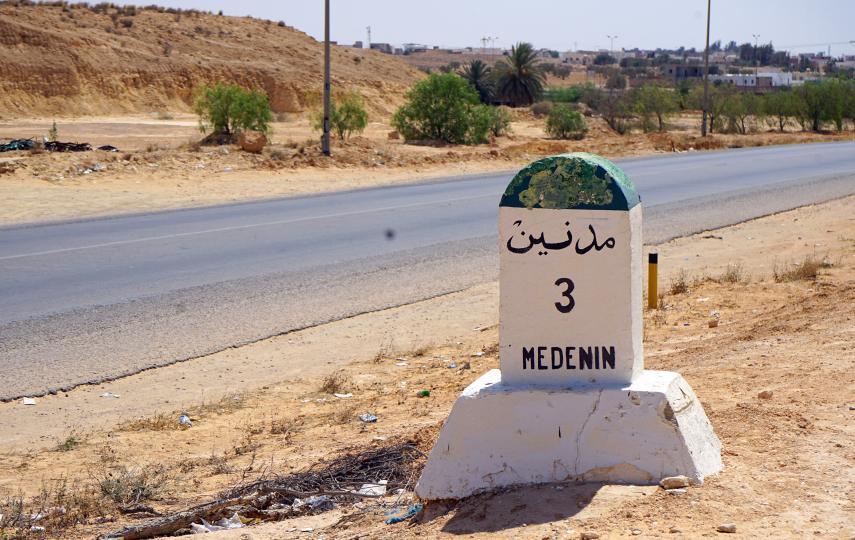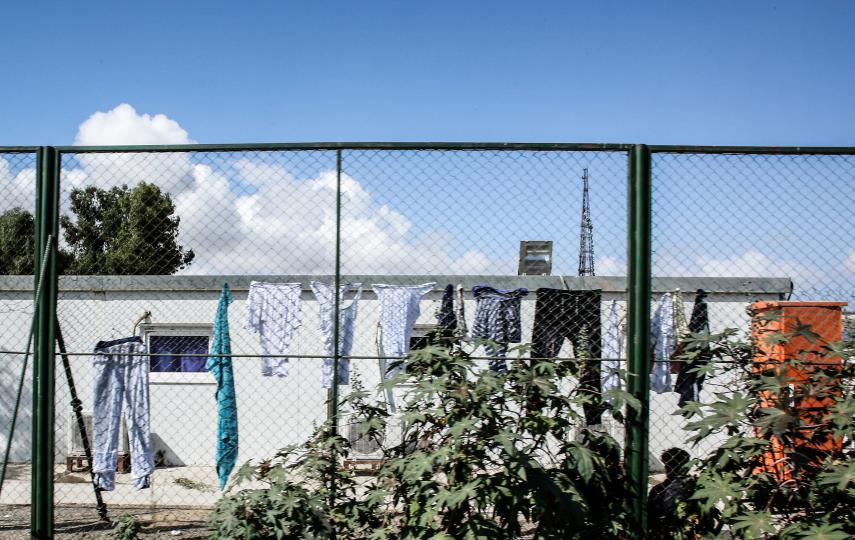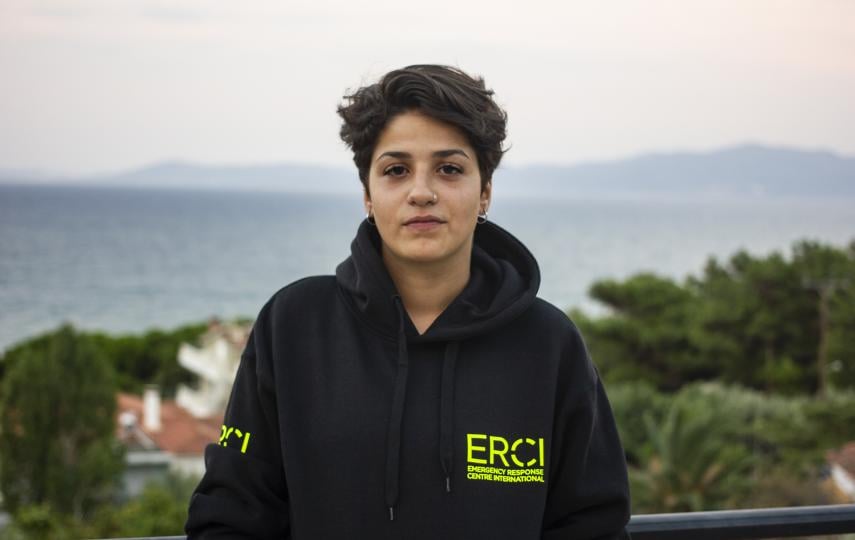More than 10 months into a conflict that is wreaking havoc across Libya, civilians are enduring increasing danger and hardship, in particular hundreds of thousands of migrants and asylum seekers, many of whom are hoping to reach Europe by crossing the Mediterranean.
As Libya descends further into chaos and faces an ongoing monetary crisis, many of the country’s institutions have begun to collapse, including some of those responsible for migration. Members of the Italian-trained and EU-funded Libyan Coast Guard told The New Humanitarian they are not being paid, and the Tripoli-based government is struggling to feed people in its often-criticised migrant detention centres.
Since early April, fighting in and around the capital has pitted Libya’s internationally recognised Government of National Accord (GNA) and the militias that back it against eastern forces led by general Khalifa Haftar.
Peace efforts have so far failed to secure a lasting truce – both sides said Monday that they were suspending participation in UN-backed talks – and the violence has forced nearly 150,000 people to flee their homes. The UN’s humanitarian coordinator for Libya, Yacoub El Hillo, said last week that the conflict is "severely impacting civilians in all parts of the country on a scale never seen before".
As a major part of Europe’s strategy to stop smuggling, EU countries (led by Italy) have spent more than 90 million euros ($97 million) since 2017 on providing training, equipment, ships, and assistance to the Libyan Coast Guard.
Earlier this month, Italy renewed the Memorandum of Understanding that governs its cooperation with the GNA authorities. The renewal, and the initiative in general, has been knocked by rights groups, given that the Coast Guard regularly returns the people it intercepts at sea to migrant detention centres back on land.
There are thought to be more than 645,000 migrants, refugees, and asylum seekers in Libya. While numbers are not definite, it is estimated that between 3,200 and 5,000 of them are being held in GNA-affiliated centres across western Libya, where conditions are often desperate, and abuse is rife.
According to several sources in the GNA’s Directorate for Combating Illegal Migration (DCIM), some migrants – upon interception by the Coast Guard in the Mediterranean – are no longer being brought to detention, as has been common practice, because the government is unable to feed them. A spokesperson for the UN’s refugee agency, UNHCR, confirmed this was “a trend we have observed”.
Mohammed al-Shibani, the GNA’s undersecretary at the interior ministry – in charge of the DCIM – admitted there was an issue with food provision in detention, although he said the problem was not a lack of cash. Instead, he said the company contracted to provide food in the centres had been unable to work because of the violence spreading across Libya.
“Everyone is facing danger,” he said. “Refugees and Libyans.”
A questionable partnership
The EU’s cooperation with the Libyan Coast Guard – part of a programme called “integrated border management and migration management to Libya” – has come under heavy scrutiny.
Most of the money has come from the EU Trust Fund for Africa and from Italy, which has taken the lead in working with the GNA-affiliated force.
“I have not been paid my salary for four months now, and this will be the fifth month.”
But Italy does not directly pay salaries and – despite denials of any problems with payments from the Coast Guard spokesperson – three officers insisted they were not being paid. An early February statement from the GNA’s Ministry of Finance said some public officials were not being paid.
“I have not been paid my salary for four months now, and this will be the fifth month,” one of the officers, based in the Mediterranean port city of Khoms, told TNH.
The officer – sent last year to Italy for training along with dozens of other Coast Guard members – said he and his colleagues were still doing their jobs, but were often not reporting to duty until they were called upon. According to the Coast Guard sources, the Libyans deploy when instructed to do so by an “operations centre” in Tripoli, which includes the Italian navy.
The UN’s migration agency, IOM, says at least 1,700 migrants have been intercepted or rescued by the Coast Guard and brought back to Libyan shores since the beginning of this year. Many – but not all – were taken to detention centres.
In a letter dated 13 February and published this week, the Council of Europe’s Commissioner for Human Rights urged Italy to suspend its work with the Coast Guard despite the recent renewal of its agreement, saying, “I am gravely concerned about certain types of assistance provided to Libya, in particular to the Libyan Coast Guard, which have resulted in increased interceptions of migrants and asylum seekers at sea, and their subsequent return to Libya, where they are subjected to serious human rights violations.”
Neither the EU nor the Italian Ministry of Foreign Affairs responded to requests for comment from TNH in time for publication.
In a reply to the commissioner’s letter, Italian authorities said that while they are “fully aware that there is room for improvement in the cooperation” with Libya, overall they believe engagement with the country has been effective in countering people-trafficking on the Mediterranean and reduced the number of attempted crossings.
Last week, European foreign ministers announced a new naval mission – a revamped version of Operation Sophia, which aimed to disrupt smuggling networks in the Mediterranean but stopped using boats in March 2019 – to help enforce an arms embargo that the UN says has been consistently violated.
The move drew fire, in part because some European politicians said the mission would withdraw its ships if they proved to be a draw for migrants leaving Libya’s shores and hoping to be rescued.
The number of NGO-operated search and rescue ships patrolling the Mediterranean has dropped significantly under pressure from populist European governments.
Detention centres
The UN estimates that some 3,200 migrants are being held in detention centres officially run by the GNA-affiliated DCIM and controlled by armed groups in the west of the country. Other sources put the number closer to 5,000, and it is unclear how many migrants are being held elsewhere, either in parts of the country the GNA does not control, or in locations humanitarians are simply not aware of.
Even before the past months of fighting worsened Libya’s downward spiral, conditions inside the centres were desperate. In a December 2018 report, the UN’s mission to Libya said that conditions in the DCIM’s detention centres are “generally inhuman, falling far short of international human rights standards”, citing overcrowding, poor hygiene, inadequate ventilation and lighting, and insufficient sanitation as problems.
There was already a lack of sufficient food in the centres – the UN report highlighted widespread malnutrition – but now, according to sources inside the DCIM, some migrants are not being detained because there is nothing to feed them at all.
Two sources in the DCIM said the company contracted by the GNA to bring food to the detention centres has been unable to work for more than two months in the west of the country due to the deteriorating security situation. Another source in the DCIM contested this allegation, and said the reason for the lack of food was that the government had not paid the catering company.
“It was the same food routine everywhere: one piece of bread for each person and, in the evening, a plain pasta dish for every six people,” said one of the DCIM employees. “But today nobody is bothering about food [in detention centres].”
Al-Shibani of the Ministry of Interior said “the food problem” was not the GNA’s fault, but rather “the company cannot operate properly due to the security situation”, adding that the government had signed contracts with new catering companies, and “we are hoping they will start operating as soon as possible”.
“The detention centres are very crowded,” the senior official said. “We are doing our best to keep them running.”
Many migrants are still being brought to detention centres after they are intercepted at sea, but in other cases, DCIM sources said, intercepted migrants were not being detained because the centres were too dangerous to reach or because there was no way to provide them with even the most basic services.
“It has happened in the past that we couldn't reach the DCIM and we were not able to bring people to the detention centre,” said a Coast Guard spokesperson.
“People are crying hysterically.”
Meanwhile, a UN source, who insisted on anonymity because of the sensitivity of the situation, said that the World Food Programme does not generally provide assistance inside detention centres because of both a lack of access and the international community’s opposition to their existence.
However, the source said, in some “emergency situations” where migrants have been completely without food, the WFP has stepped in to help.
In its reply to the Council of Europe commissioner, Italy said its overall objective is to “progressively replace the current system based on detention centres with new formulas, adhering to the principles of the rule of law, victim-centred, and human rights oriented”.
But while conditions in the centres are often reported as horrific, some people inside have been left wondering what will happen if they are closed down without any warning, given reports of widespread abuse of migrants across the country.
One person from Darfur, who spoke to TNH via WhatsApp from a detention centre near the Libyan coast, said, “people are crying hysterically”, having learned they are unlikely to be evacuated from Libya.
“It’s difficult to deal with this,” they added. “But we feel that outside the detention centre we will be in danger.”
With additional reporting from Annie Slemrod
sc-as/ag






